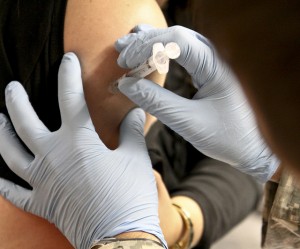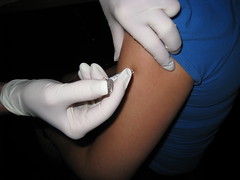
California’s measles outbreak has refueled heated debates about mandated childhood vaccinations. With little known about the political leanings of anti-vaxxers, many politicians are carefully toeing the line to avoid alienating potential voters. In a recent Star Tribune article, though, sociologist Kent Schwirian said:
There is a long history to the fight against vaccination, and it does seem to break down along liberal versus conservative lines.
Schwirian argues that political conservatives are more likely to be anti-vaxxers than their liberal peers. The Ohio State University professor bases his claim on his own 2009 study of the swine flu scare, in which he found that conservatives who distrusted government were more likely to oppose vaccinations than were others with higher levels of trust or more progressive politics.
For more, see “There’s Research on That!“

